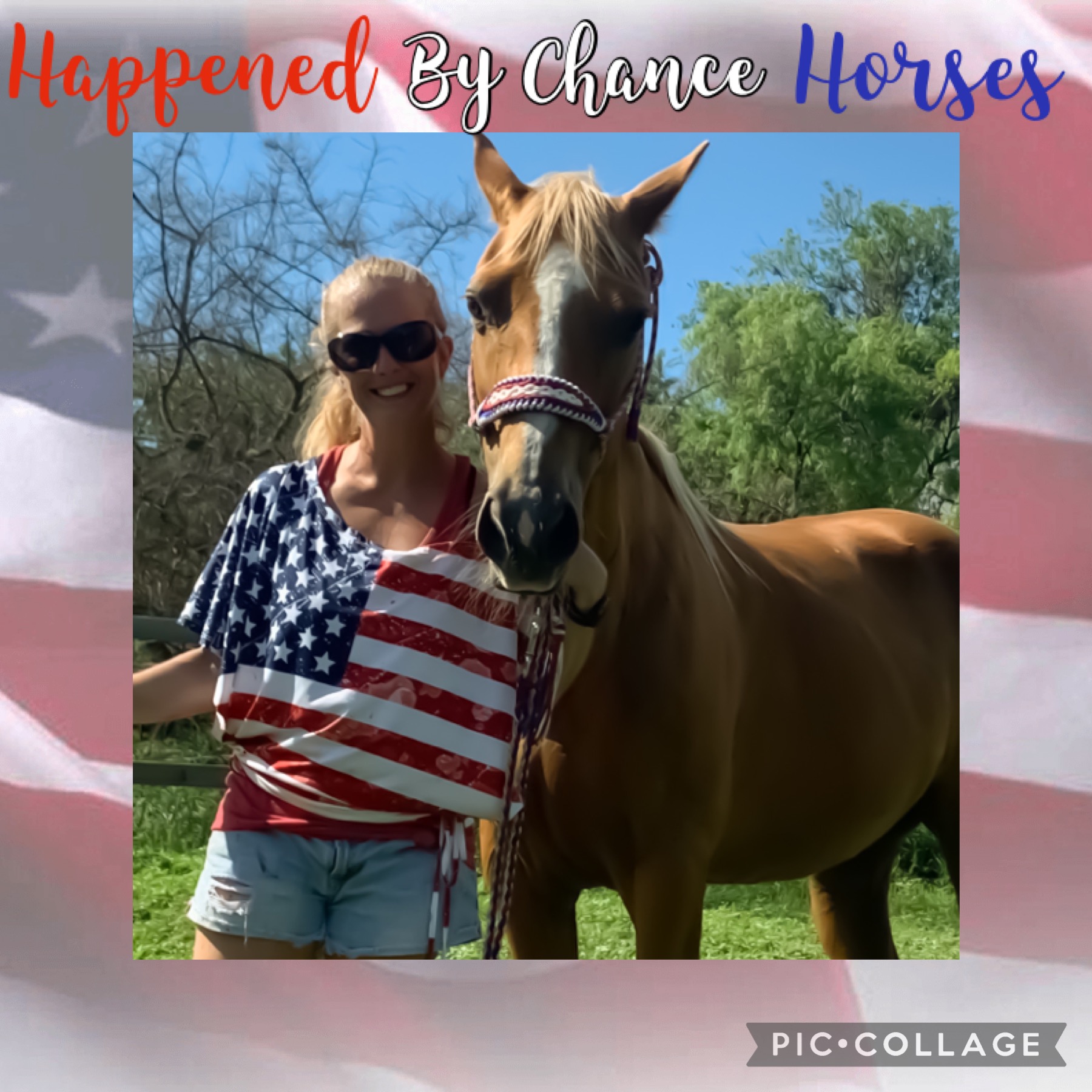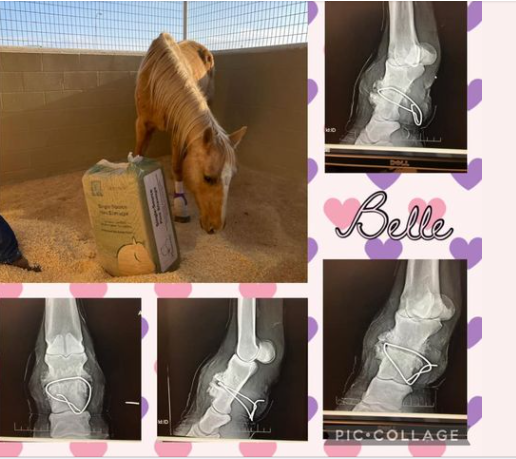Happened By Chance Horses, Inc. by Cate Cummings APRN, FNP, IFMCP, ReCODE 2.0 CP
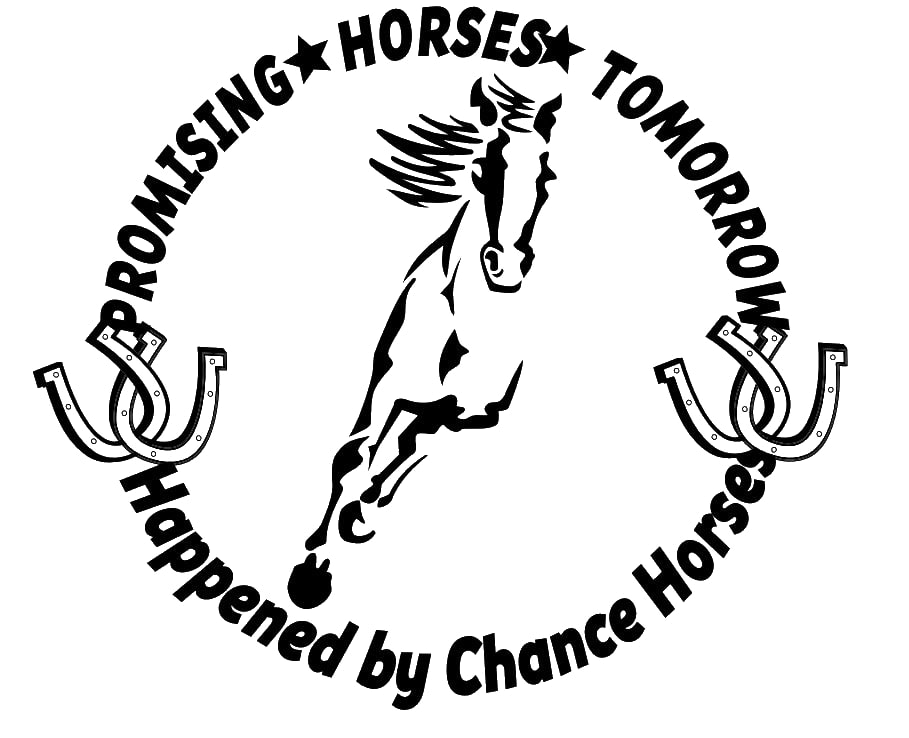 HAPPENED BY CHANCE HORSES, INC.
HAPPENED BY CHANCE HORSES, INC.
Here is a horse rescue that demonstrates what one determined woman can do to help stop the suffering of so many equines. This is a very impressive rescue led by a very impressive lady!
Her name is Linda Nemec and she is the President and Founder of Happened By Chance Horses, Inc., from New Braunfels, Texas. As the name of her horse rescue clearly states, her life focus of rescuing horses from abuse and neglect happened by chance. But, not the usual meaning of ‘chance’ as in terms of serendipity. No, her path towards becoming an outstanding horse rescuer happened by Chance, her special needs son!
Linda began this rescue in honor of her special needs son, Chance. He is now 24. Linda knows that he absolutely loves horses and has seen how “horses have a distinct way with people with special needs.”
Linda Nemec and a horse she rescued named Belle, now all restored to full health!
Belle was saved from a kill...
Watermelon Pizza by Health Coach, Melanie Rathbun, FMCA
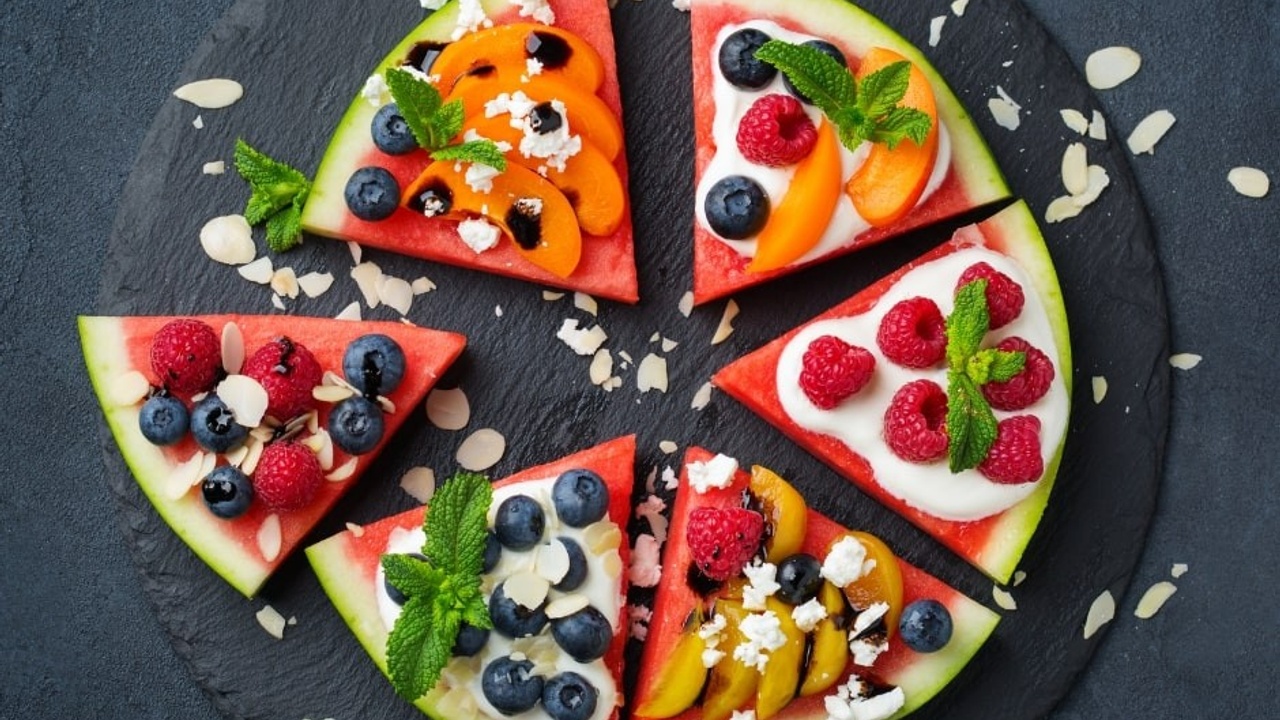
With summer comes the joy of plenty of seasonal fruits and vegetables to choose from. Watermelon is top on the list for summer snack enjoyment and our produce pick for this month. It’s very hydrating (90-92% of it is water!), which provides electrolytes such as potassium. It’s simple to serve, easy to digest, and most people enjoy its flavor.
The beautiful color of watermelon comes from lycopene, an antioxidant. Watermelon has more of this wonderful nutrient than any other fruit or vegetable, even tomatoes. The brighter red the better.
Choline is another antioxidant that occurs in watermelon. It contributes to muscle movement, learning and memory, maintaining the structure of cell membranes, the transmission of nerve impulses, and early brain development. We love brain-boosting foods at BWC for Horse Lovers!
Watermelon is also rich in an amino acid called citrulline that may help move blood through your body and can help lower your blood pressure. It...
Watermelon by Health Coach, Deborah Cox, FMCA, NBHWC
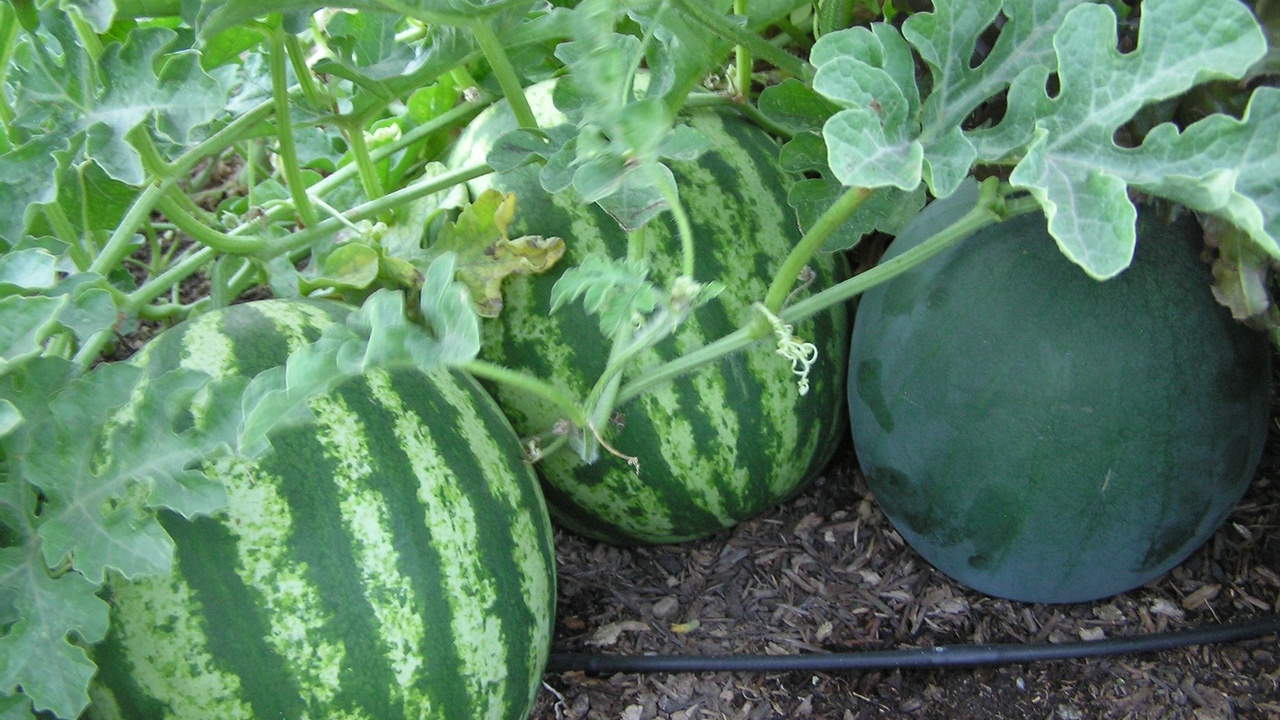
"Watermelon is the chief of this world's luxuries, king by the grace of God over all the fruits of the earth. When one has tasted it, he knows what the angels eat." – Mark Twain
Watermelon may be one of the most recognized and loved summer “fruits”, from ice- filled livestock tanks chilling them at a summer BBQ to the sweet juice running down your chin to seeing who can spit seeds the furthest, yes, watermelon is a summer hit!
The watermelon (Citrullus lanatus ), a member of the Cucurbitaceae family (cucumber, squash, pumpkin, and muskmelon), was thought to have originated in southern Africa for years. It was thought that a drought-tolerant plant, the exact identity is unknown, used by the indigenous peoples of the Kalahari Desert was where today’s watermelon came from. Although this plant was prized for its water storage capabilities, its flesh was pale green, hard, and very bitter. The common thought was that these plants made their way to...
Ozone Generators Can Help You Clean Up Mold & Mycotoxins Such As In Old Books!

When someone discovers they have a mold problem in their home or other living space, they often wonder how to deal with the situation. The most important thing to do first is to follow the First Rule of Toxicology and “remove the person from the toxin, or the toxin from the person” (Campbell, personal communication, April 6, 2021). In this case, the toxin is mold and the chemical byproducts mold produces, including mycotoxins, are dangerous to human health (Campbell, personal communication, April 6, 2021).
In the case of water/mold damage, a person needs to stop the source of the water/mold damage as quickly as possible. Working with professional water/mold remediators is the wisest choice to ensure the building returns to a healthy state. If the area of mold contamination is more than 10 square feet (roughly an area greater than 3 feet by 3 feet), then, according to the EPA, it should be professionally remediated (2).
My husband and I personally experienced the...
How To Determine If A Human Health Challenge Is Due To Mycotoxins
How to Determine if a Human Health Challenge is Due to Mycotoxins
In the June 2021 BWC For Horse Lovers Newsletter I introduced the subject of how mold and their toxic byproducts, mycotoxins, can harm human health.
Dr. Andrew W. Campbell notes that molds can cause four main problems for people:
- Infection
- Hypersensitivity or Allergic Reactions
- Irritant Reactions
- Toxic Reactions (Campbell, personal communication, April 6, 2021).
In this July 2021 BWC For Horse Lovers Newsletter I am writing to share information on how to properly determine if the body is currently being burdened by toxic reactions to mycotoxins produced by molds.
But first I will provide a little introduction as to why we should always think about mycotoxins as a possible cause of human suffering.
As Blackwell (2011) notes, molds are an integral part of nature’s recycling system. Dr. Campbell teaches us that of the more than 100,000 species of molds, thankfully, only about 2 dozen are harmful to people, most...
Zucchini! by Health Coach Deborah Cox, FMCA, NBHWC
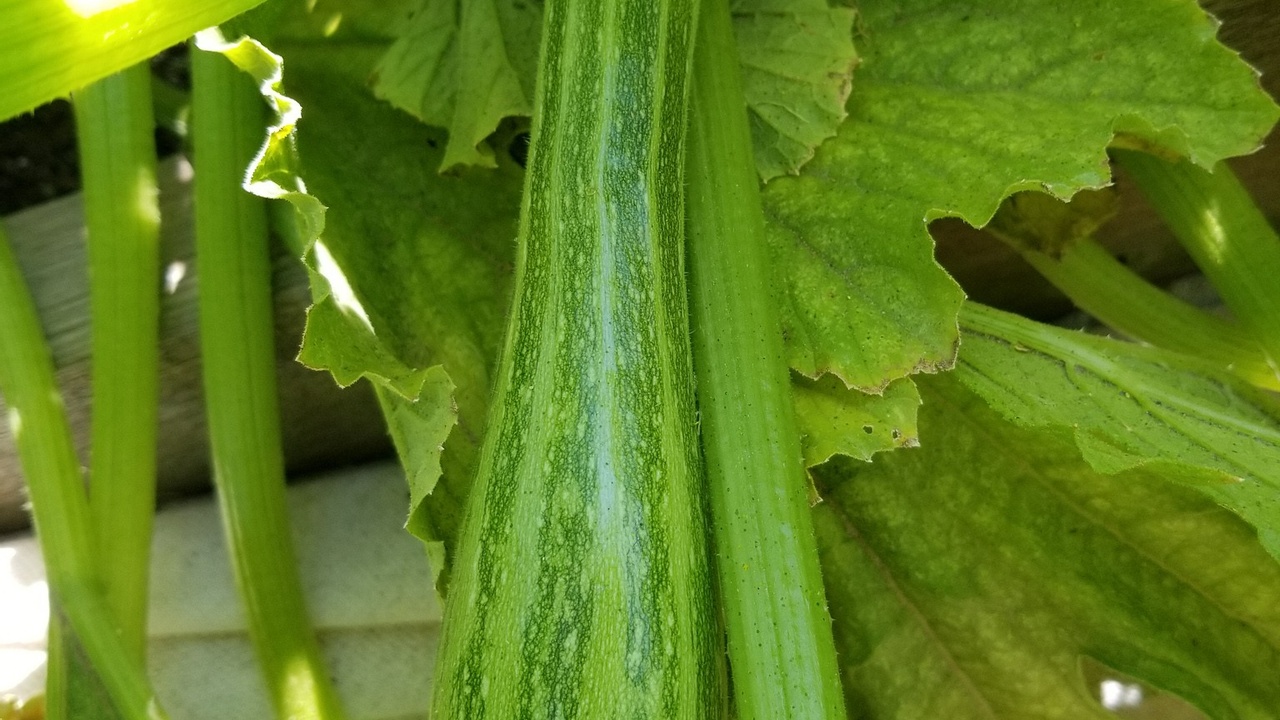
Zucchini
“The trouble is, you cannot grow just one zucchini. Minutes after you plant a single seed, hundreds of zucchini will barge out of the ground and sprawl around the garden, menacing the other vegetables. At night, you will be able to hear the ground quake as more and more zucchinis erupt.”
Dave Barry.
Zucchini, Cucurbita pepo, a humble, yet extremely prolific, member of most gardens today, had a very well-traveled beginning. It originated from native seeds taken from areas of Mesoamerica, central Mexico through parts of Honduras, Nicaragua, and Costa Rica, by Old World explorers. Squash seeds have been found in...
Coconut Zucchini Fries by Health Coach, Melanie Rathbun, FMCA
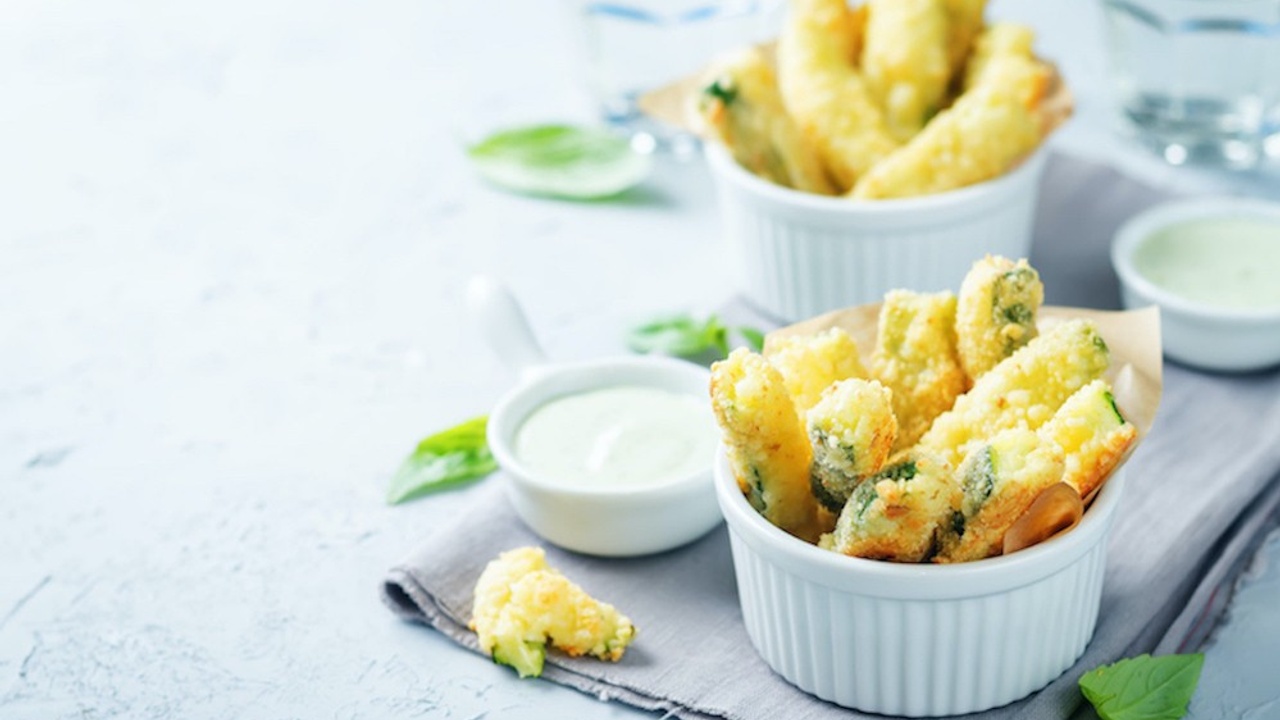
July equals summer and summer equals a colorful harvest of warm-weather produce. Zucchinis are now in season, and we’re loving it! If the overabundance of zucchini produced by your garden may cause you to lose interest in this vegetable-like fruit (yes, technically botanically classified as a fruit!), take a deep breath. We’re here to help you fall back in love with this nutrition powerhouse, so let’s dig into a bit of the nutritional benefits of zucchini, a squash in fact.
Squashes are mainly autumn harvest ‘vegetables’. Many squashes need to be cooked by baking or steaming, although the popular zucchini and yellow crookneck (both summer squashes) can be sliced and eaten raw in salads or with dips. Most of the squashes are high in carbohydrates, mainly as starch, with a high fiber content. Many are high in Vitamin A, especially the orange or yellow squashes. Vitamin C and potassium are...
Colorado Horse Rescue by Cate Cummings APRN, FNP, IFMCP, ReCODE 2.0 CP

When a person views the Colorado Horse Rescue (CHR) website (https://chr.org), I think you might easily get the feeling that these people are very serious (with a positive mindset and a lot of energy for their mission!) about saving every horse in need in Colorado and beyond. They are a very devoted team that has been hard at work at rescuing horses since 1986 – that is 35 years of service to save equines!
The new logo (created in 2019) for the CHR depicts their Rocky Mountains roots and the way a horse holds his ears when he is alert and perky! This is reflective of their “forward facing mentality.” They dare to imagine a world where “no horse falls through the cracks.”
CHR was founded by Sharon Jackson and Jill Pratt and became a 501(3)(c) non-profit in 1988.
Currently, the Executive Director of CHR is Katherine Gregory, and the Operations Manager of CHR is Rachel Corbman.
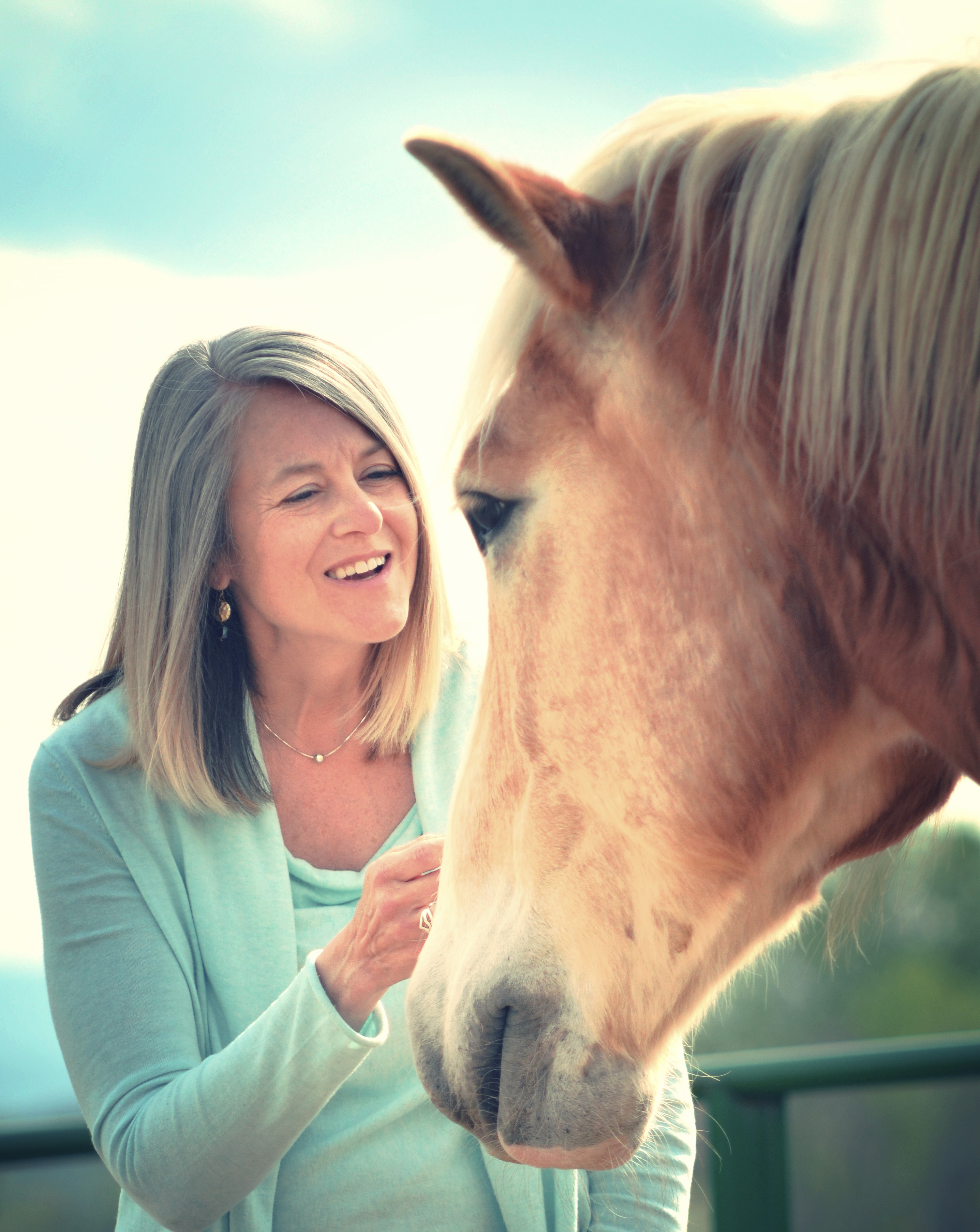
Katherine Gregory, Executive Director

Rachel Corbman, Operations...
Bluebonnet Equine Humane Society.
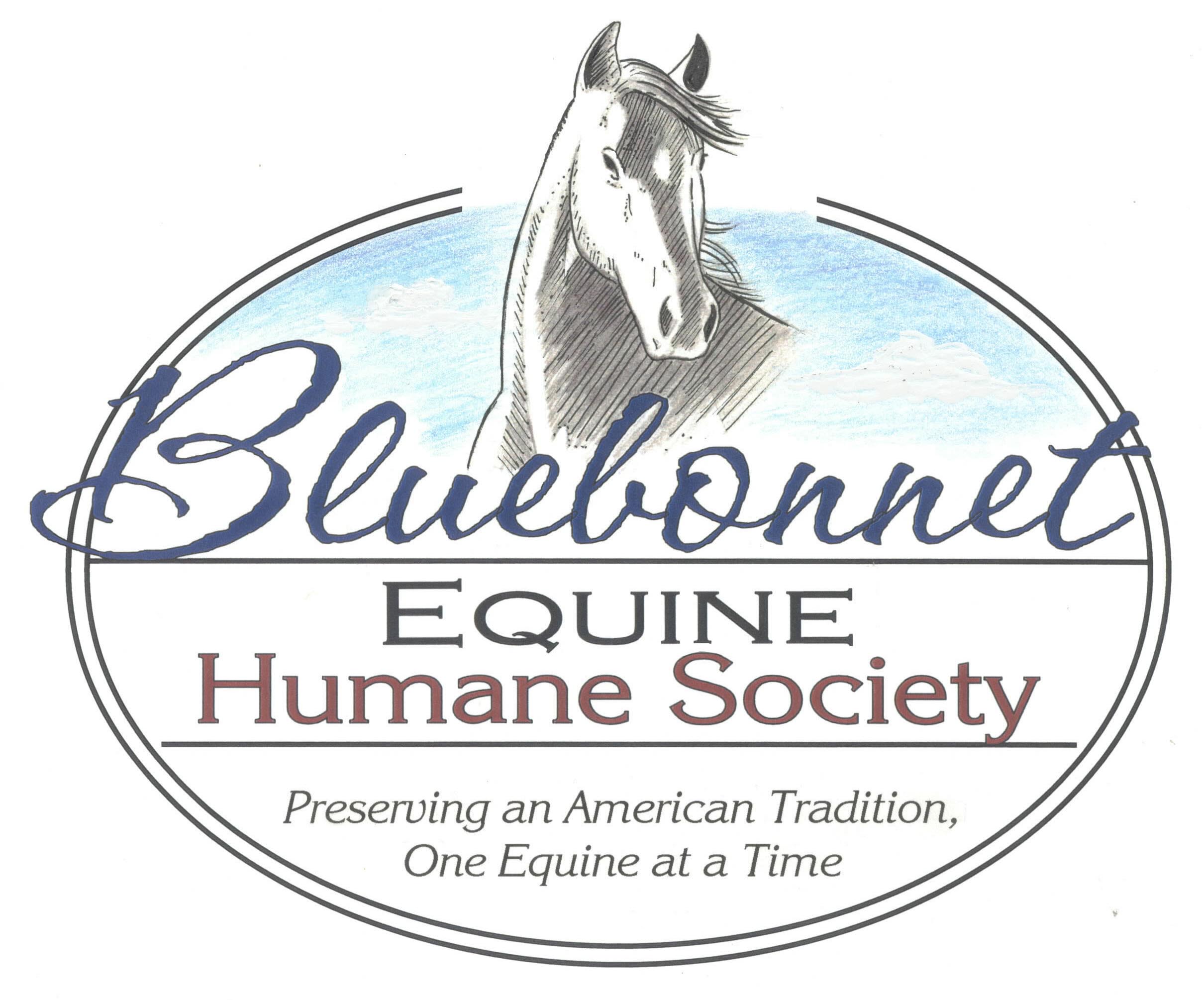
Bluebonnet Equine Humane Society (BEHS)
Preserving an American Tradition One Equine at a Time
Rescue. Rehabilitate. Retrain. Rehome.
Vision
Envisioning a world where no horse needs to be rescued.
Mission
To improve the lives of equines by educating and helping owners, assisting law enforcement agencies, rehabilitating abused and neglected equines, and placing them into safe, permanent homes.
That is a superlative vision to have and I wish it could be true some day in the near future. In the meantime, BEHS is doing an outstanding job of helping save abused and neglected horses, mules, and donkeys in Texas and Arkansas.
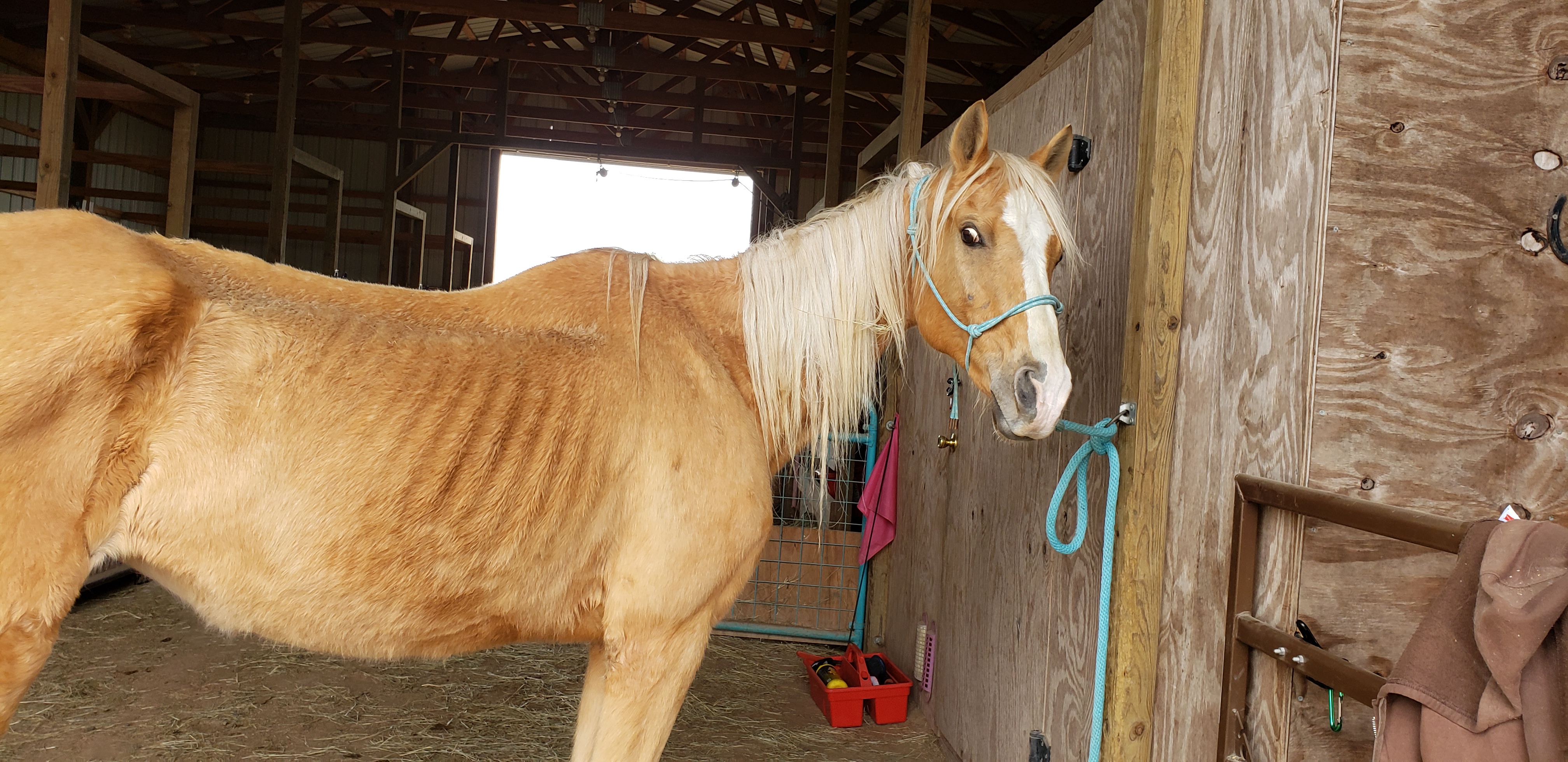
Neglected and starved Palamino horse upon arriving at BEHS.

The same Palamino restored back to full health by the loving people at BEHS! He was then adopted out to his loving forever home! Total success story! :)
History of BEHS
They have a remarkable and interesting history of continuous development of their organization for the full benefit of all of...
Cucumber and Radish Salad by Health Coach Melanie Rathbun, FMCA
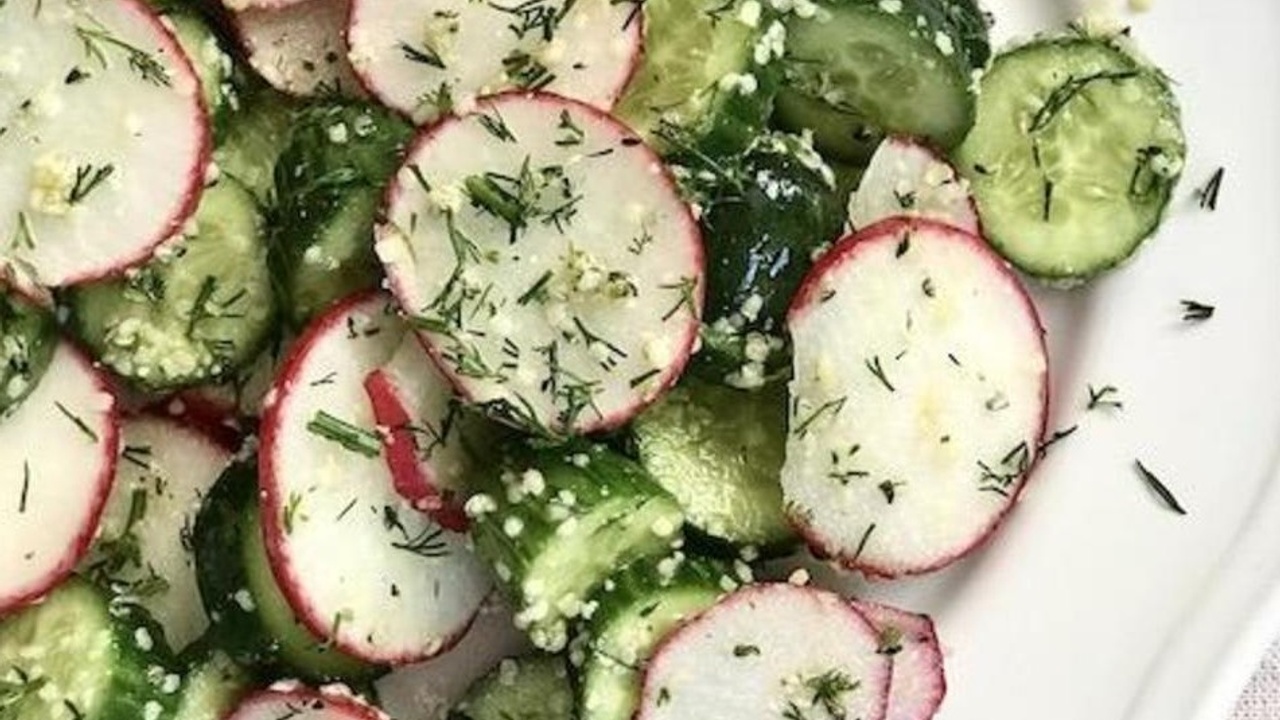
As you may have noticed by now, we at BWC For Horse Lovers love consuming and preparing local and seasonal produce. Radishes are currently being pulled from many gardens and local farms, so it’s a great time to share some information (and of course a recipe you can all enjoy at home!).
I often come across clients who have never tried radishes, or who simply don’t know how to prepare them, so now may be the perfect time to experiment. Don’t let them be an afterthought. The more we can eat the rainbow and try new foods, the more nourishment we can take in from all of the amazing fresh produce that is available to us.
A radish is a root of a plant from the brassica family. Close relatives to the radish include broccoli, mustard greens, kale, cauliflower, cabbage, and turnips. Radishes range in flavour from peppery hot to mild and sweet, depending on the age and variety of the plant, and they also come in many shapes and colors. Radishes...

